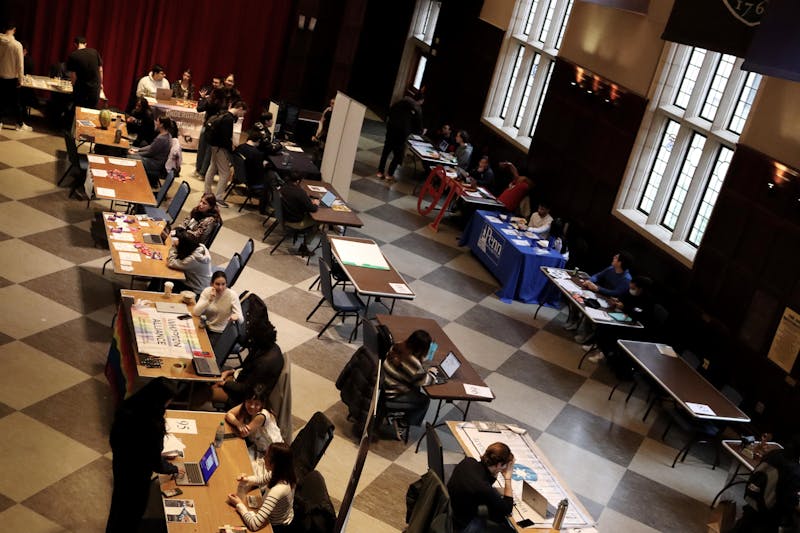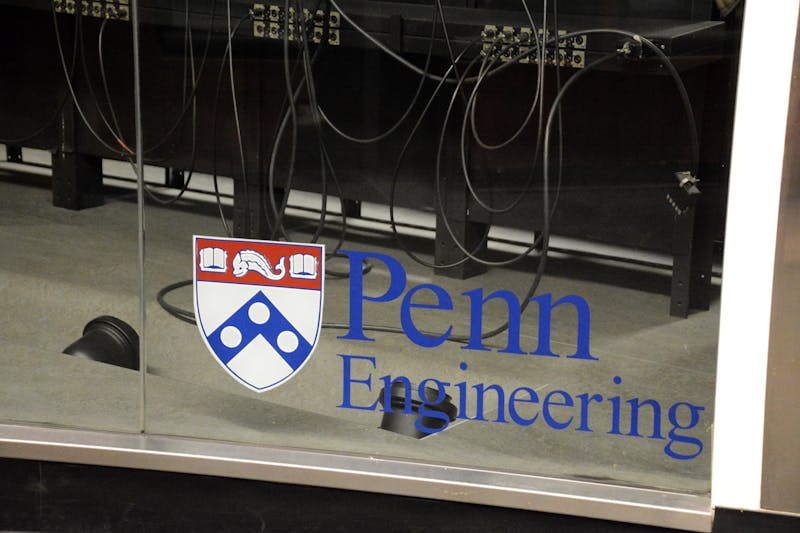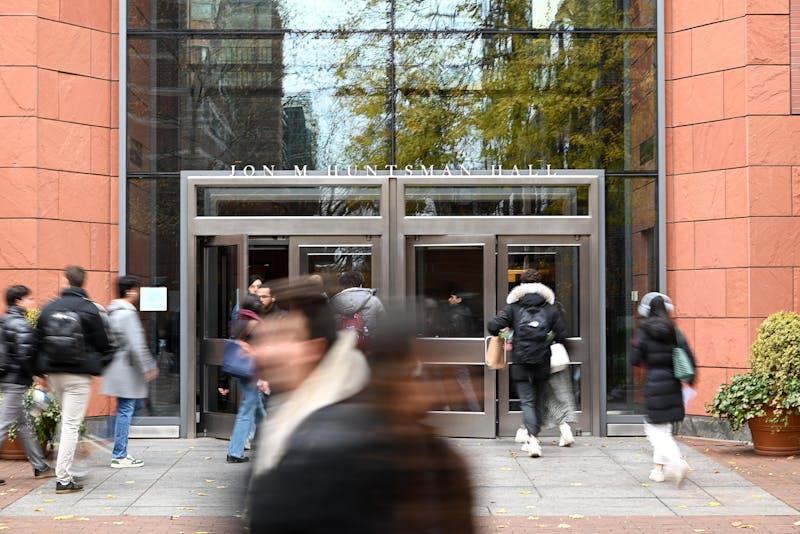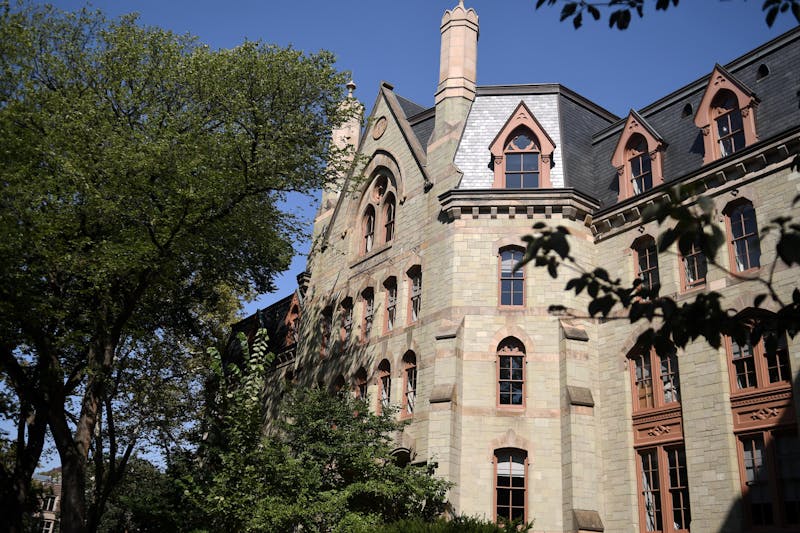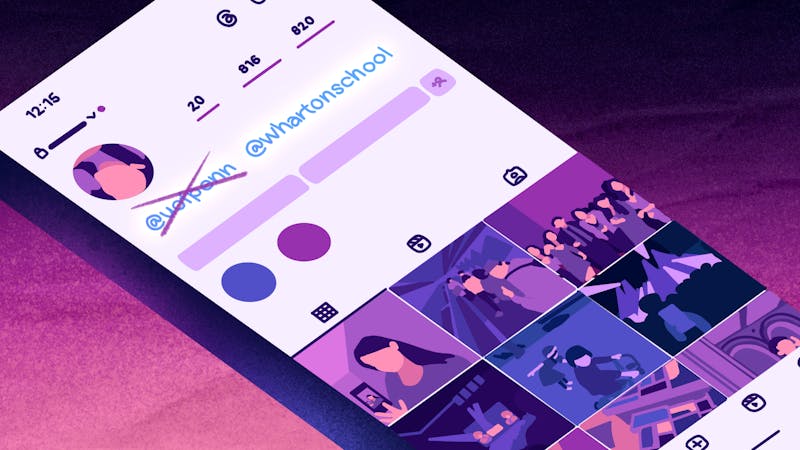
Admitted students explore Locust Walk during Quaker Days on April 14, 2023.
Credit: Benjamin McAvoy-BickfordTo the incoming Class of 2028, congratulations! You have entered the tricky lottery that is the college admissions process and come out on the other side victorious. You likely poured your heart into every minute detail of your application in the hopes that the admissions office would select you, above every other qualified candidate. I was in your exact position just two short years ago.
My application, like that of many admitted students, was a carefully curated collection of my passions, aspirations, and achievements. It showcased the very best version of myself, in every letter grade on my transcript and sentence of my Common Application essay.
To the admissions committee, I was an aspiring linguistics major with musical talent and a dedication to community service. My international upbringing provided me with unique, worldly perspectives, and I expressed a special interest in exploring the city of Philadelphia through classes and extracurriculars. My teachers and counselor described me as a hardworking team player who was a joy to have in class.
Two years later, I can confidently say that the person in my application — the one with the electric personality, near-perfect grades and wildly lofty ambitions — is not who I am today. In fact, she’s also not the person that I truly was a year and a half ago when I clicked submit on my application. Behind those bold words and ideas lies somebody who is a lot less sure of herself. She has regular moments of clarity but also the crippling fear that she is experiencing a midlife crisis at the age of 19.
I suspect that I am not alone in feeling that way. The competitiveness of college admissions requires us to craft a persona. Given Penn’s sub-6% acceptance rate, applicants have no choice but to present themselves in a perfectly palatable way. We make promises to the admissions committee, in regards to the person we are and the person we hope to become on their campus.
However, these promises were made to be broken. I recently reread my application to Penn, and seeing the disconnect between the messages I’d penned and the life I currently live was jarring. The future I visualized with paragraphs of flowery descriptions portrayed a version of my current self that has not come true in the way I intended.
This has been a difficult thing for me to come to terms with. What exactly does it mean when we drop our intended majors, or when we replace a future career in the arts for something a little more lucrative, like finance or consulting? Call it the Ivy League sellout culture, or maybe just call it self discovery.
Indeed, opportunities for self exploration run rampant at Penn. With over 450 student organizations and countless ways to find community, it is not uncommon for us to morph into new, oftentimes better versions of ourselves during our four years here. Writing for The Daily Pennsylvanian, for instance, was never something that had crossed my mind before entering college. I had zero experience with journalism and had never even regarded myself as a good enough writer. Now, here I am.
But there may just be a larger issue at hand. Elite college admissions forces applicants to shapeshift. We vie frantically for the chance to secure a seat in the ivory tower, even if that means exaggerating our passions and very identities. Even worse, the application process forces us to reaffirm these identities over and over again, be it through the ideas expressed in our supplemental essays or the intended major drop-down. It is not surprising then that many students, myself included, find it difficult to disentangle themselves from their application personas.
Since coming to Penn, I have felt immensely guilty forgoing my linguistics aspirations, abandoning a prior musical talent, and finding new activities in which to invest my time. However, I think there’s something beautiful about how a new environment, opportunities, and people can change us. While clicking submit on my application two years ago, it was this hope that caused me to leave home to attend college oceans away.
I assure you that departing from your application self is not only normal and expected, but it is something to aspire to. When you think back to the person you were before coming to Penn, you may not recognize them. You may reread your application like I did and realize that your future has turned out differently than how you anticipated. And that’s okay. As you begin this four-year journey, be it at Penn or any other institution that you choose to attend, allow yourself the grace of growth.

SANGITHA AIYER is a College sophomore studying cognitive science from Singapore. Her email is saiyer@sas.upenn.edu.
The Daily Pennsylvanian is an independent, student-run newspaper. Please consider making a donation to support the coverage that shapes the University. Your generosity ensures a future of strong journalism at Penn.
Donate







